#Queen Luise of Prussia
Text
instagram
German and English (second text)
👑 Zum bevorstehenden Thronwechsel in Dänemark: Margrethe II. – eine direkte Nachfahrin Königin Luises von Preußen
Übermorgen, am 14. Januar, zweiundfünfzig Jahre nach ihrer Thronbesteigung, wird Königin Margrethe II. von Dänemark nun abdanken und ihrem Sohn, der ihr als König Friedrich X. folgen wird, die Regierung übergeben.
Aus diesem Anlass lohnt es sich, einen Blick auf die Verwandtschaft zu werfen, die Königin Margrethe II. mit dem einstigen preußischen Herrscherhaus verbindet: Gleich von mehreren Seiten ist die Monarchin nämlich die vierfache Urenkelin der preußischen Königin Luise.
In unserem aktuellen Beitrag auf unserer 👑Facebookseite Schloss Charlottenburg👑 erfahren Sie mehr über die Verwandtschaft Margrethes II. zu Königin Luise. Wir wünschen Ihnen anregende Unterhaltung.
👑In Berlins größtem Konigsschloss können Sie von Dienstag bis Sonntag zwischen 10 und 16.30 Uhr auf den Spuren der Königin Luise wandeln. Im Neuen Flügel erwarten Sie das elegante Appartement Luises sowie die Wohnräume ihres Mannes König Friedrich Wilhelms III. Wir freuen uns auf Ihren Besuch.
Fotos © Det danske kongehus; Thomas Weiberg (Büste der Königin Luise in der Sommerwohnung Friedrich Wilhelms II. im Schloss Charlottenburg.)
---------------------------------------------------------------------
👑 On the upcoming change of throne in Denmark: Margrethe II - a direct descendant of Queen Luise of Prussia
The day after tomorrow, on 14 January, fifty-two years after her accession to the throne, Queen Margrethe II of Denmark will abdicate and hand over the reign to her son, who will succeed her as King Frederick X.
To mark the occasion, it is worth taking a look at the family ties that link Queen Margrethe II to the former Prussian dynasty: On several sides, the monarch is in fact the fourfold great-granddaughter of Prussian Queen Luise.
In our current article on our 👑Facebook page Charlottenburg Palace👑 you can find out more about Margrethe II's relationship to Queen Luise. We wish you stimulating entertainment.
👑In Berlin's largest royal palace, you can follow in the footsteps of Queen Luise from Tuesday to Sunday between 10 am and 4.30 pm. Luise's elegant flat and the living quarters of her husband King Friedrich Wilhelm III await you in the New Wing. We look forward to your visit.
Photos © Det danske kongehus; Thomas Weiberg (Bust of Queen Louise in the summer flat of Frederick William II in Charlottenburg Palace).
#Denmark#Dänemark#Prussia#Preussen#Germany#Deutschland#Queen Margarethe II#Königin Margarethe II#King Frederick X#König Frederick X#Queen Luise of Prussia#Königin Luise von Preussen#Palace Charlottenburg#Schloss Charlottenburg#Berlin#Copenhagen#shared heritage#gemeinsames Erbe#shared history#gemeinsame Geschichte#Instagram
1 note
·
View note
Text
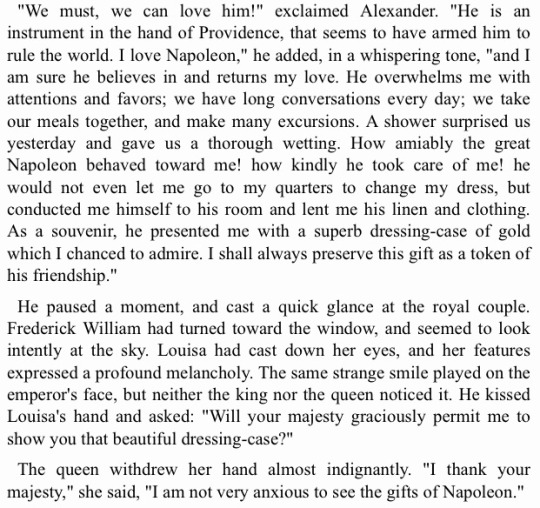
Ok for a novel that’s called “Napoleon and the Queen of Prussia” this seems to have strong napalex undertones
Also Alexander… read the room, no one wants to see your “beautiful dressing-case”
#‘he would not even let me go to my quarters to change my dress but conducted me to him room!’#yeah alex I think he might’ve had an ulterior motive there#napoleon and the queen of prussia#napoleon bonaparte#alexander i of russia#frederick william iii#queen louise of prussia#luise mühelbach
48 notes
·
View notes
Text
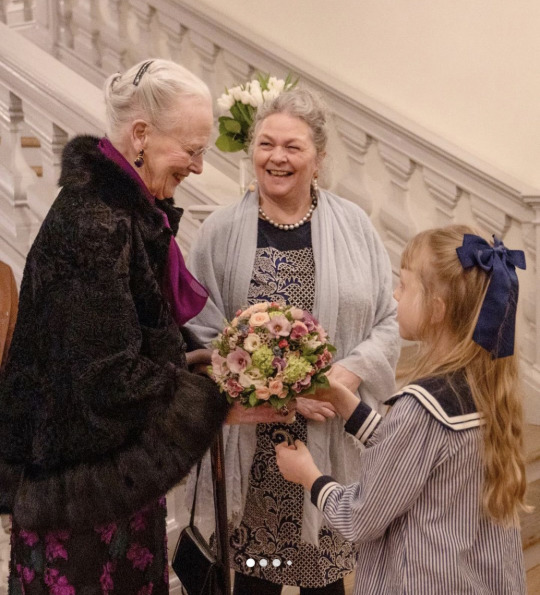
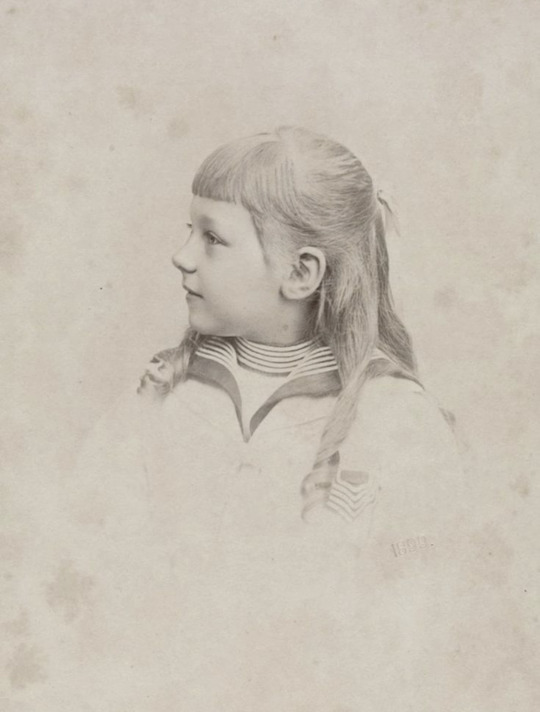
Viktoria Luise is that you?!
#noticed this today!#they literally look like twins#Viktoria Luise of Prussia#princess Viktoria Luise of Prussia#princess Victoria Louise of Prussia#Victoria Louise of Prussia#prussian royal family#queen margarethe ii#parallels
11 notes
·
View notes
Text
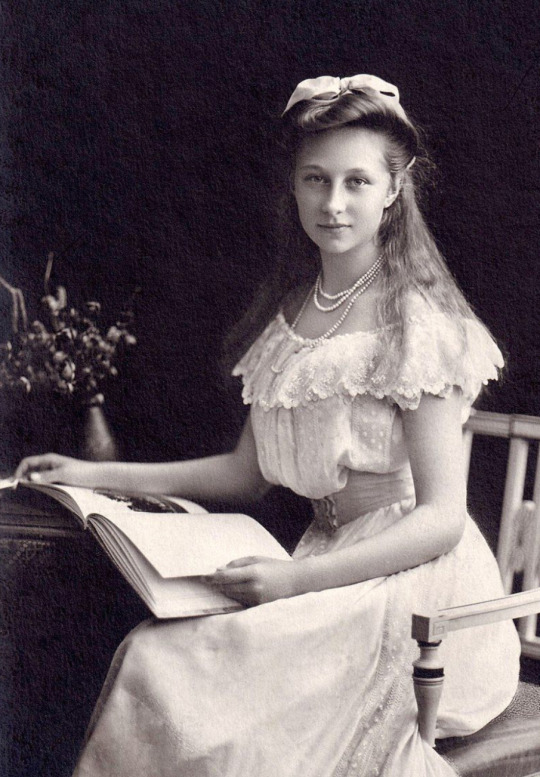
Princess Victoria Louise of Prussia
Daughter of Kaiser Wilhelm II, Great Granddaughter of Queen Victoria
1892-1980
#what a beauty!!!#🤍💗💎#princess victoria louise of prussia#princess viktoria luise of prussia#Victoria Louise of Prussia#prussian royal family#Prussia#kaiser wilhelm ii#queen victoria
35 notes
·
View notes
Text
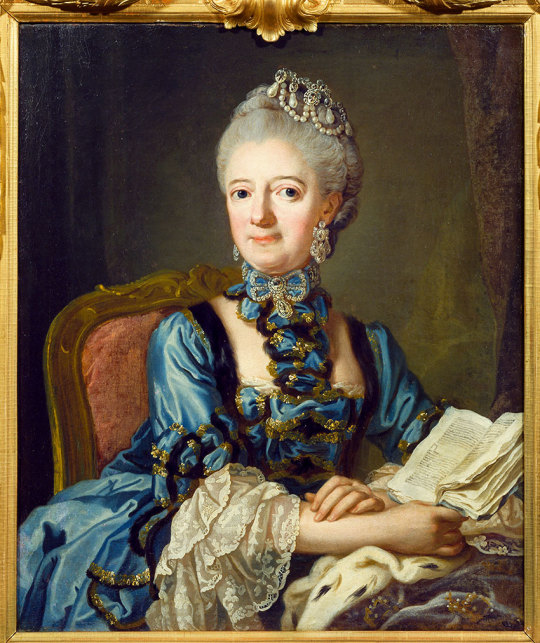
Queen Lovisa Ulrika of Sweden by Lorens Pasch the Younger (oil on canvas, 1768)
The talented, highly educated Lovisa Ulrika became one of Sweden's leading cultural figures. No other Swedish queen has left more of a mark on the theatre, and she also breathed new life into royal entertainment. She built up the palace theatres at Drottningholm and Ulriksdal.
Lovisa Ulrika was influenced by the ideals of the French Enlightenment. As a queen, she used the resources at her disposal to promote culture and science. For example, she supported the Swedish writer Hedvig Charlotta Nordenflycht and was also a patron of Carl Linnaeus.
In 1753, Lovisa Ulrika established the Royal Swedish Academy of Letters, a centre of knowledge for research within the humanities.
Photo: royalpalaces.se
#swedish royal family#queen lovisa ulrika#luise ulrike von preußen#louisa ulrika of prussia#prinzessin luise ulrike von preußen#princess louisa ulrika of prussia#house of hohenzollern#art history#official portrait#swedish royalty#swedish history#royal history
3 notes
·
View notes
Text
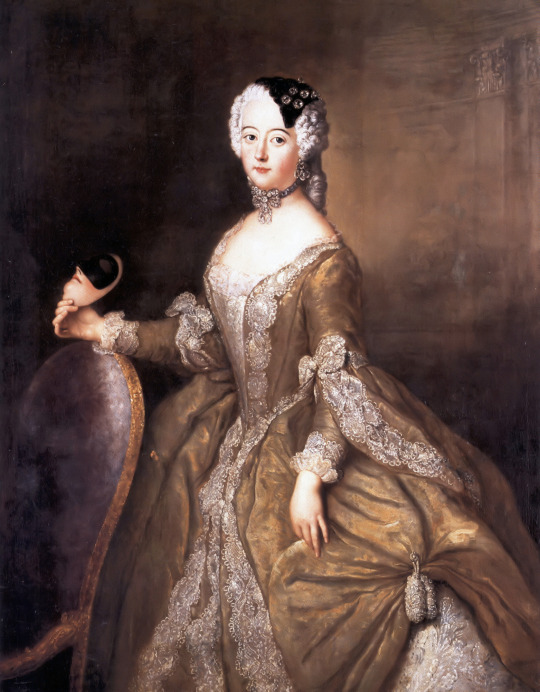
Luise Ulrike of Prussia, Queen of Sweden by Antoine Pesne (1683 - 1757)
48 notes
·
View notes
Text

The Château Merveil, a dollhouse created for and at the request of poet Ludwig Derleth (German, 1870–1948)
"When Ludwig, following secondary school, went on to study in Munich, he attended lectures by Prof. [Jakob] Frohschammer on the subject of "Fantasy" [...] A tangible product of Ludwig's imagination (apart from many small drawings and woodcuts) was the Château Merveil. This dollhouse, in Oriental style, was built by my brother Wilhelm [Ulrich] according to Ludwig's wishes. This little marvel was borne of the human instinct to play. It was built in 1915, in the midst of war. One wanted to escape the burden of existence.
The castle — named after that in Wolfram von Eschenbach's "Parzival" — was built by enchanted hands of only the finest materials (ebony, agate, malachite, mother of pearl, ivory, gold plating, velvet, seashells) for Ludwig's sake. It contains, symbolically, everything that makes life beautiful; it is illuminated by magic, and one never tires of looking at it because he always senses something else hidden behind everything.
One of its most beautiful features is its two high glass doors. Their story is as follows: after the defeat in Russia, Napoleon's French officers stayed a while in Münnerstadt, and they used a diamond ring to etch images on the windows: one of Queen Luise of Prussia in a crowd, and the other of a rider on a horse. As a boy, Ludwig attended school in Münnerstadt, and later continued to remember the windowpanes. Like a magician, he willed them into his possession..."
Christine Derleth, Das Fleischlich-Geistige : Meine Erinnerungen an Ludwig Derleth (Bellnhausen über Gladenbach: Hinder + Deelmann, 1973)
19 notes
·
View notes
Text
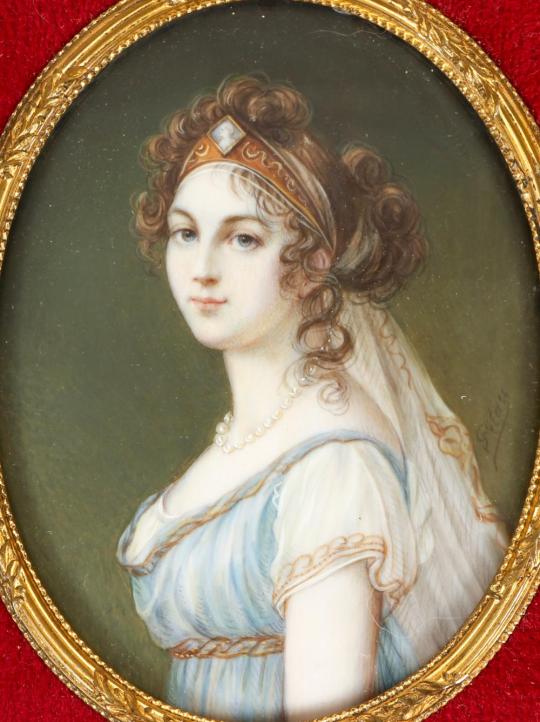
Miniature portrait of Queen Luise of Prussia
found on Invaluable
78 notes
·
View notes
Text


The Husbands of the Four Graces
Some time ago, I read a very interesting book about Queen Victoria's Hessian Granddaughters (Victoria, Elizabeth, Irene, and Alix.) The title was "The Four Graces," and ever since I read it, that is the way I think about the daughters of Grand Duke of Louis IV of Hesse and by Rhine and the beautiful princess Alice of Saxe-Coburg and Gotha, second daughter of Queen Victoria.
These young women were among the most marriageable princesses of their generation. They were beautiful, accomplished and Queen Victoria's granddaughters. There was no need to look for husbands for them. Among their suitors could be found future Kaisers, Tsars and Kings of England even though it was well known that any or all of the princesses could be carriers of hemophilia (inherited from their august grandmother Victoria.) Their sons might be bleeders. One of their brother's had been, therefore Princess Alice, their mother, had been a carrier.
The four men they married appear in the first photograph above; one marquess, one prince, one grand duke, and one Emperor (all of them very handsome):
👑Louis Mountbatten, first Marques of Milford Heaven (the man all the way to the left on the picture) married Princess Victoria Alberta Elisabeth Mathilde Marie of Hesse and By Rhine. Victoria and Louis had two sons and neither one of them had hemophillia.
👑The Hohenzollern Prince and brother of the German Keiser, Prince Heinrich of Prussia (the man to the right of Mountbatten in the photograph) married Princess Irene Luise Marie Anne of Hesse and By Rhine. They were first cousins since Heinrich was the son of Queen Victoria's eldest daughter, the Princess Royal, who was the older sister of Princess Alice. They had three sons. Two out of the three had hemophilia. One died in childhood of causes related to that disease.
👑 Grand Duke Sergei Alexandrovich of Russia (the man to the right of Prince Heinrich) married Princess Elizabeth Alexandra Louise Alice of Hesse and by Rhine. Sergei and Elizabeth had no children.
👑The soon-to-be Tsar Nicholas II of Russia married Alix Viktoria Helene Luise Beatrix. Alix had one son, and he had hemophilia. (gcl)
#russian history#imperial russia#empress alexandra feodorovna#princess alix of hesse#princess Irene of Hesse#Princess Victoria of Hesse#Princess Elizabeth of Hesse#Tsar Nicholas II#Prince Heinrich of Prussia#Louis Mountbatten#Hessian princesses#hemophilia#gcl
20 notes
·
View notes
Text
"It is a feast for the eyes to see the happiness and harmony that radiates from them": Archduchess Sophie's reaction to her son's engagement (part 2)

Continuation of the letter Archduchess Sophie wrote to her twin sister Queen Marie of Saxony on the ocassion of Franz Josef and his cousin Elisabeth's engagement (part 1 is here):
The Emperor's gentlemen are delighted about his choice and full of touching joy about his happiness. Grünne [Emperor Franz Josef's adjutant general] cries as often as he speaks of it and as often as they speak to him of it. - Unfortunately, the weather was bad on the 18th, but it was perhaps favourable, as the Emperor could devote himself all the more to his young love. At the family dinner the Emperor was so proud that Sisi, who was allowed to sit next to him, had eaten with a very good appetite!… (The afternoon excursion took place in the carriage due to bad weather). He [the emperor] must have been very fond of her to have lasted so long in the closed Caleche! Lenza [Helene] talked a lot and was entertaining, the girl has a great charm for me, my eyes followed her, and that is always the case when I have sympathy for a young person. But you can well imagine that my eyes are also busy looking at Sisi, and they rest with delight on this happy couple who love each other so much and in such a charming way; it is a feast for the eyes to see the happiness and harmony that radiates from them. After the promenade, the Emperor came to me and I noticed that he had something on his mind and wanted to talk to me. I asked him if he had anything to say. He replied: 'Yes much, yes much!' Jokingly I sent Bubi into the other room and there he said I should ask Luise to find out from Sisi whether she wanted him, 'but', he added with his usual modesty, 'ask her not to exert any pressure on her daughter'. Then he said: 'My situation is so difficult that, God knows, it is no pleasure to share it with me!' Then I said: 'But dear child, how can you believe that a woman is not too happy to ease your situation by grace and cheerfulness?'… When Luise came to tea, I gradually acquainted her with the Emperor's wish. She pressed my hand with emotion, for in her great modesty she had always doubted that the Emperor would really think of one of her daughters. In the evening I could not refrain from saying to Elise [likely the Queen of Prussia, Sophie and Ludovika's elder sister] and the brothers as I passed by: 'I am so happy!'…When Luise spoke of the Emperor's intentions to Sisi, the latter was completely moved and looked at her mother with her deep gaze, so radiant and enchanting and with her seductive smile; and when the mother asked if she could love him, she said: 'How should one not be able to love the man?' Then she burst into tears and assured me that she would do everything to make the Emperor happy and to be the most tender child for me. 'But,' she said, 'how can he think of me? I am so insignificant!' - This word proves that she is not. The next day or the day after - I don't remember, because in these days we were so fortunate in a few hours that one can no longer count the time - it seemed to us all again and again as if we had been in possession of this happiness for a long time, and yet it has only existed for four days… on one of these days Sisi said to Kadi this charming word: 'I love the Emperor so much! If only he were not an emperor…!' That is what makes her so shy, this future position. The Emperor was literally delighted when I told him this touching saying from his bride, as it contains so much deep and undemanding understanding for him.
Luise wrote me a few touching words on the evening of the 18th, which I received on the morning of the 19th. I quickly sent them to the Emperor, who immediately appeared at my house, beaming with joy. At 8 o'clock he went to the hotel to Luise, who told him of her joy, and then rushing towards Sisi, the two of them fell into each other's arms, as Luise then told me: and she was so pleased about it! We smiled with tears, Elise and I, when she described it to us. You can't imagine how much and how often we laugh now, Elise and I… When they left the hotel to have breakfast with us, the Emperor gave his bride his arm, and when Kadi and Fischer (the Court Counsellor, as the little ones respectfully call him) saw this, they could no longer doubt that everything was all right, and were heartily pleased about it.
You can't imagine how lovely Sisi is when she cries…! My Karl, Charlotte and brother Karl [Prince of Bavaria, Sophie and Ludovika's elder brother] came to dejeuner. They were delighted when I introduced them to the young couple! I sent for Fritzi and Paula, they were all puffy and red from crying. The Emperor sent for Grünne and his other winged adjutants to introduce them to his bride… At 11 o'clock we all went to mass, which the Emperor had especially wished for. The priest received us with holy water, his eyes full of tears! …"
#not sophie ignoring all the red flags because she was delighted about the engament bye#sophie of bavaria archduchess of austria#empress elisabeth of austria#franz josef i of austria#ludovika of bavaria duchess in bavaria#helene in bavaria hereditary princess of thurn und taxis#queen elisabeth of prussia#archduke karl ludwig of austria#karl ludwig von grünne#prince karl of bavaria
42 notes
·
View notes
Text
instagram
Some Prussian Glory to gild your weekend :)
This sculptural bust of Prussia’s Crown Princess Luise by the artist Gottfried Schadow. A fashion queen, working mother, and even the Queen of Hearts? Perhaps Queen Luise of Prussia had a little bit of all that in her. Yet, above all else, since 1797, she had been Prussian queen, mother of 10 children, and wife of Frederick William III, to whom she was a faithful companion through all of life’s ups and downs. Photo: SPSG/Wolfgang Pfauder
Louise of Mecklenburg-Strelitz (Luise Auguste Wilhelmine Amalie; 10 March 1776 – 19 July 1810) was Queen of Prussia as the wife of King Frederick William III. The couple's happy, though short-lived, marriage produced nine children, including the future monarchs Frederick William IV of Prussia and Wilhelm I, German Emperor. Her legacy became cemented after her extraordinary 1807 meeting with French Emperor Napoleon I at Tilsit – she met with the emperor to plead unsuccessfully for favourable terms after Prussia's disastrous losses in the Napoleonic Wars. She was already well-loved by her subjects, but her meeting with Napoleon led Louise to become revered as "the soul of national virtue". Her early death at the age of thirty-four "preserved her youth in the memory of posterity", and caused Napoleon to reportedly remark that the king "has lost his best minister". The Order of Louise was founded by her grieving husband four years later as a female counterpart to the Iron Cross.
#Instagram#Königin Luise von Preussen#Luise Queen of Prussia#Prussia#Napoleon I#Tilsit#Luisenorden#Order of Queen Luise#Befreiungskriege#German wars of Liberation
6 notes
·
View notes
Text
L.Mühlbach, Duroc in Berlin
A short scene from a German 19th century author who wrote plenty of (rather lengthy) historical novels: Luise Mühlbach, »Louise of Prussia and her times«. I was astonished to find her works translated into English already, so this is just copied over from gutenberg.org. Duroc learns of the tradition of christmas presents and immediately wants to have one. (The story is reported by Friedrich Gentz to another character in the novel.)
[…] The queen told General Duroc of our German customs, and informed him that this was the day on which the Germans everywhere made presents to each other, and that gifts were laid under Christmas-trees, adorned with burning tapers. At that moment Duroc turned to the king, and said, with his intolerable French amiability: ‚Sire, if this is the day of universal presents in Germany, I believe I will be courageous enough today to ask your majesty for a present in the name of the first consul, General Bonaparte, if your majesty will permit me to do so.’ The king, of course, gave him the desired permission, and Duroc continued: ‘Sire, the present for which I am to ask your majesty, in the name of the first consul, is a bust of your great ancestor, Frederick the Second. The first consul recently examined the statues in the Diana Gallery at the Tuileries; there were the statues of Caesar and Brutus, of Coriolanus and Cicero, of Louis XIV. and Charles V., but the first consul did not see the statue of Frederick the Great, and he deems the collection of the heroes of ancient and modern times incomplete as long as it does not embrace the name of Frederick the Great. Sire, I take the liberty, therefore, to ask you, in the name of France, for a bust of Frederick the Great!’
[Footnote: Historical.]
The request of course endeared Duroc to the Prussian court even more. I like the scene mostly because it shows how different customs were at the time in different regions.
#napoleon's marshals#napoleonic writing#napoleonic media#louise mühlbach#geraud christophe michel duroc
23 notes
·
View notes
Photo
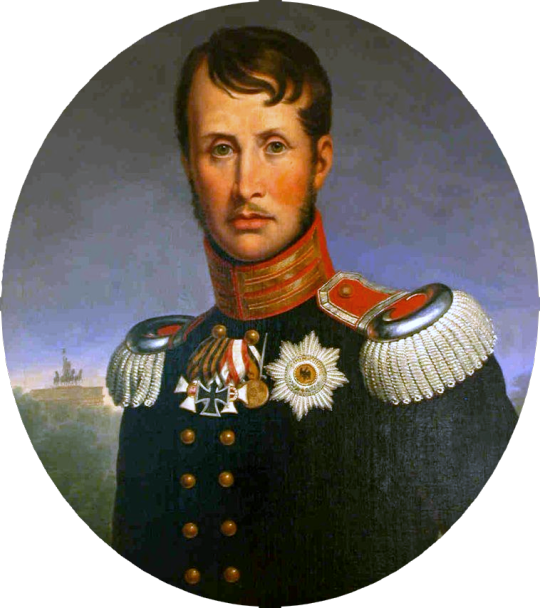
“The differences of birth neither gives nor takes any assets; everything depends on personal worth.”
The melancholic civilian on the throne of Prussia, Friedrich Wilhelm III.
(fairly long rant incoming, slightly biased and emotional, I am no historian and merely stating my opinion)
I’m so exhausted from work that I nearly forgot about him, even though I pretty much owe this blog and one of my main hobbies to him in the first place. On this very day, 252 years ago, this man was born. He was many things. A beloved king. A devoted husband. A loyal friend. A gentle father. A cherry-loving romantic. An unwanted son. A self-proclaimed coward. A laughingstock of a tactician. A person stuck in positions he didn’t want to be in, with roles forced upon him which he didn’t feel good enough to fullfill, and (to an extent) rightfully so. An introvert, humiliated and bullied pretty much from the moment he was born, while also inflicting pain onto others out of fear or anger with no other tool to use to channel it in a healthy way. A smart boy, abused by those older and stronger than him.
“A boy, who’s being raised without an imagination or reasons to laugh” his great-uncle Frederick the Great proclaimed.
“A man with the aura of a friend and father-” the people would call him, “- with eyes that cry when no one is looking.”
A king who preferred the simple things in life. While most other rulers demanded a banquet, he was content with bread and tea. Playtime with the children, who were usually given away for other people to raise and teach, was mandatory for him. Giving people gifts or surprising them with a warm gesture or heartfelt comment was one of his favorite things to do. Holidays and festivals would be spent with the whole town. Going to the operahouse dressed as a regular civillian was a hobby of his. Celebrating his loved one’s birthdays, even when said person wasn’t even present, was normal to him. And he hated seeing people suffer.
He wasn’t perfect by any means. His harsh exterior would dominate his entire personality every so often. Cold-hearted comments or ignorant jokes at the expense of other people’s emotional turmoil. His anxiety filled mind pulling him out of the realm of reality so he could run away from his problems. Excuses over excuses to try and reason with common sense and responsibility. Depression and panic narrowing his mind. Trying (and failing) to emotionally minipulate others to gain confirmation of his own insecurities. His ruthless honesty coming off as insensitive for most people’s standards. A person stuck between being cold-hearted and sensitive, one leg in the past with other in the future, holding hands with the people he loved while also trying to run from them. His worst enemy wasn’t Napoleon, it was himself.
One could argue that he was weak. I believe that he was human.
He didn’t shine by being a great military leader, or a conqueror, or a talented politician. The crown was placed on his head because it had to be. His heart was in the right place, while is mind was stuck in a maze. Ideas of reforms and improvements held back by fear and anxiety, emotions hidden in the mist of self-doubt and shyness, morals tainted in the dust of crumbling confidence and self-esteem. Had it not been for a few special people in his life then he might have withered away in a gust of wind, left forgotten in our history. Some say he’s only remembered for living through one of the most important times of European history. Others say his relationship with his wife the queen or the tsar of Russia are the only noticable things about him. During history lessons at school, I heard his name maybe twice. Which is not enough for me. His legacy did not fully go unnoticed, although it is being overshadowed by that of others. A lot of the things we know, do and use nowadays in this country of Germany come back to him. While most praise his wife Luise for her role as a “mother of the country”, or his great-uncle Frederick the Great for his accomplishments, or hate on his father Friedrich Wilhelm II. for wasting Prussia’s money and prestige for personal gain, we should not forget about him. He is a part of our history. A part of our culture. A part of our every-day lives. A part of us.
I wish I would have had the time to visit him today. It’s a shame that people aren’t allowed to put down flowers at his grave (although I do understand why), even though I wish I could give him something, a token of gratitude, a symbol of remembrance. Maybe I can visit Charlottenburg this weekend to visit him and Luise.
After all, it is one of the most peaceful places in Berlin.
Happy birthday, Frederick. Thank you for re-awakening my passion for history. You are my favorite Prussian king and I hope you are finally free from that pain you went through in your life. I owe you so much.

#history post#Frederick William III.#Friedrich Wilhelm III.#mod post#long post#Rant? I think?#I love him so much you have no idea#I got the song he composed as my ringtone#I want to learn piano so I can play it
40 notes
·
View notes
Photo
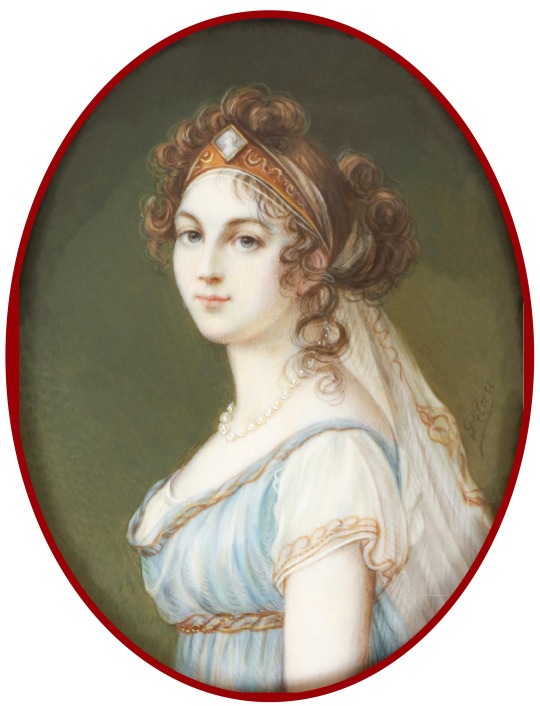
Queen Luise of Prussia miniature by ? (location ?). From tumblr.com/oldtimeroyals; fixed spots and flaws w Pahop 2225X2908.
13 notes
·
View notes
Text
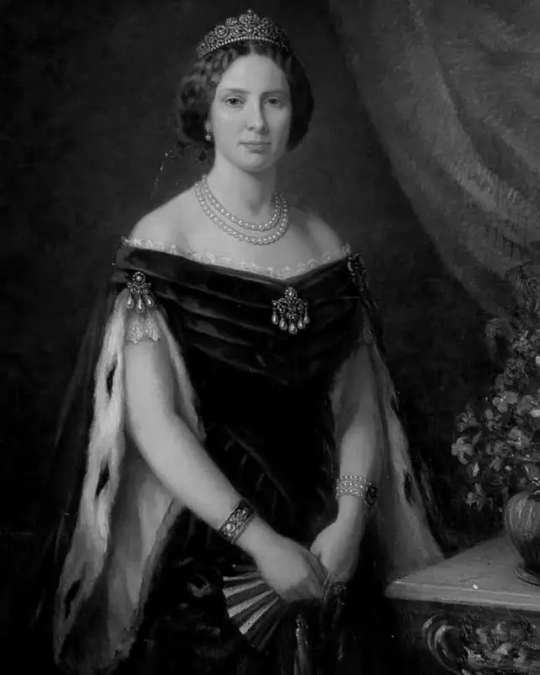



Aug. 5, 1828 - Princess Wilhelmina Frederika Alexandrine Anna Louise (sometimes written as Luise) was born in the Hague as the daughter of Prince Frederik of the Netherlands and Princess Luise of Prussia. Her education was to a large extent entrusted to her Belgian governess and she studied French, German, English, Russian and piano. The latter is something she also continued as an adult.
King Oscar I of Sweden wished to secure connections between the new Bernadotte dynasty and the old dynasties of Europe and a Protestant Princess was also seen as necessary after two Catholic Queens in a row in Protestant Sweden-Norway. Louise fulfilled these credentials, plus a great dowry was expected from the rich House of Orange-Nassau. Therefore, in 1849, Louise was chosen as a suitable bride for the heir to the Swedish throne, Crown Prince Karl.
The Minister of Foreign Affairs began negotiations and a Cabinet Secretary was sent to inspect her. In his report back he let it be known that Louise “had an excellent education and a good character but was not attractive” (quote simplified for clarity). A meeting was arranged between Louise and Karl where reportedly, Louise fell in love and felt an immediate attraction while Karl was disappointed in her appearance. The Crown Prince, however, was convinced to agree to the marriage by his father and the engagement was announced the following year.
During the engagement, Louise studied the Swedish language and history, though she never learnt Norwegian. Upon moving to her new country, her official name was changed to Lovisa.
Lovisa was not considered a social success, her timid and shy nature and tendency to suffer so-called nervous attacks were not appreciated by those of high society, though she had the sympathy and love of the wider Swedish public due to her husband's many and not-so-secret affairs. It was reported in the court chronicle that: “Lovisa could at any time faint and in connection to this, she could have what is called nerve- or cramp-attacks.” While today we may interpret this as epileptic episodes, back then it was interpreted as a hysterical reaction to her husband’s neglect.
Photo 1: Painting of Queen Lovisa from The Royal Court of Norway.
Photo 2: Photograph of Queen Lovisa circa 1860 (photographer unknown, 8.3 x 4.8 cm), from the collection of Prince Albert, the Prince Consort.
Photo 3: Photograph of King Karl XV, Queen Lovisa and their daughter Princess Lovisa (photographer and year unknown).
Photo 4: Portrait of Queen Lovisa by Court Photographer Johannes Jaeger, 1869. Believed to be the oldest Jaeger photograph in the Royal Court's collections, from the Bernadotte Library's archive.
#swedish royal family#queen lovisa#louise of the netherlands#royal history#swedish history#on this day#today in history
35 notes
·
View notes
Text
Maybe an unpopular opinion but I wish they would finally stop only making movies and series of the tragic life of Sisi (Empress Elizabeth in Bavaria) and look for other interesting royal German/ Austrian or German speaking ladies/ queens like for example Queen Luise of Prussia (and her sister Charlotte, both being from the house of the dukes of Mecklenburg-Strelitz and having very interesting lifes) or Isabelle/ Elisabeth, called "Isabeau de Bavière" (from the House of Wittelsbach-Ingolstadt), wife of the so called mad French King Charles VI, mother of King Charles VII and Queen Catherine of England (first wife of Henry V of England, then married to Owen Tudor and mother of Henry VI).
Or St. Elizabeth of Thuringia/ Hungary who lived a life for the poor after she lost her husband, Ludwig/ Louis IV, the landgrave of Thuringia, in the 6th crusade (1227) and is among the most renowned Catholic saints.
I would also name Catherine the Great of Russia (Sophie of Anhalt-Zerbst) but there is a Russian series about her life and the one with Helen Mirren.
Then the famous St. Hildegard of Bingen, a famous and influential woman of the Middle Ages to this day in so many ways. Yes, there was a German movie about her some years ago but I don't think that it is widely known.
Then "Liselotte von der Pfalz" as Germans do call her, the Madame Palatine, wife of Philippe of Orlèans, brother of King Louis XIV aka the "sun king". She wrote a tremendous amont of letters in her life, leaving behind so much information about the court of the "sun king" that historians can only be thankful to her. Yes, there was the series "Versailles" but that wasn't quite an accurate one.
At least Maria Theresia of Austria, mother of Queen Marie Antoinette and King Joseph II got a series some years ago, cause let us face it, that woman was a great one. As a child it always impressed me wildly how many children she and Luise of Prussia got. It seemed insane to me.
With this I want to say: There is more got stuff about great German/ Austrian/ German speaking ladies out there. Wayyyy more.
And it angers me that it does not get depicted.
Only our tragic or as "weak/ bad" considered ladies do get some recognition like Sisi, Marie Antoinette or Tsarina Alice of Hesse. That is sad.
https://en.m.wikipedia.org/wiki/Isabeau_of_Bavaria
https://en.m.wikipedia.org/wiki/Elizabeth_of_Hungary
#the empress#elizabeth of austria#empress sisi#luise of prussia#charlotte of prussia#st. elizabeth of thuringia#st.elizabeth of hungary#isabeau de bavière#catherine the great
20 notes
·
View notes